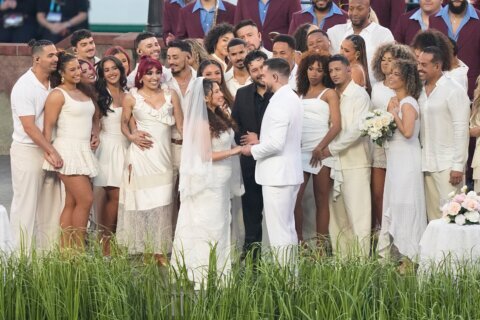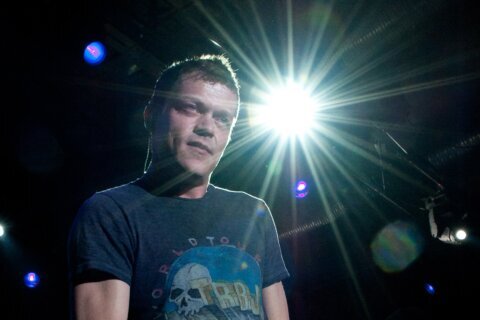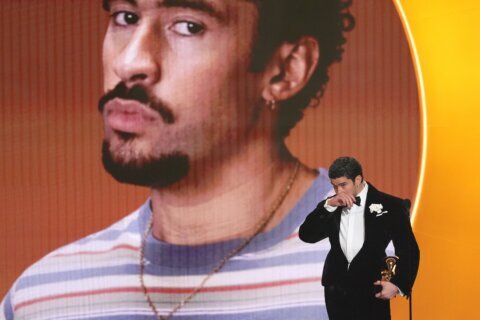WASHINGTON — Occasionally, society is changed by musical events, like the night The Beatles appeared on the Ed Sullivan Show.
Fifty years ago — July 25, 1965, to be exact — was one of those moments, when Bob Dylan played electric guitar backed by a loud blues band, at the legendary Newport Folk Festival.
A few years earlier, folk music’s elder statesman, Pete Seeger energized the Rhode Island festival, which started in 1959, by convincing the genre’s biggest stars to agree to play for $50 a day, to subsidize bringing unknown musicians from other parts of the country.
“He considered them the real folk musicians,” says Elijah Wald, who’s written a new book, “Dylan Goes Electric!: Newport, Seeger, Dylan, and the Night that Split the Sixties.”
In 1963, the annual festival included popular artists, including Seeger, Peter, Paul and Mary, and Joan Baez.
“As a result, they could bring in people no one had ever heard of which, for example, Doc Watson or Mississippi John Hurt — all these people who became legends of the sixties, first come into the public eye through that process.”
Bob Dylan’s performance on Sunday, July 25, 1965 polarized music fans, and demonstrated a shift in the growing folk culture, Wald says.
“Dylan hit the stage with a full electric blues band behind him, singing “Maggie’s Farm” and “Like a Rolling Stone,'” says Wald. “It was the first time he had ever appeared on stage with a band, it was the first time anything that loud had been on at Newport or probably at any festival anywhere, since there was no such thing as a rock festival.”
Even though most in the audience had heard Dylan’s electrified “Like a Rolling Stone” on the radio, reaction at Newport was polarized.
“Some Dylan fans loved it, a lot of people hated it, some people booed, and some people got very, very upset,” says Wald.
Pete Seeger was “horribly upset,” said Wald.
“There’s a legend that he tried to cut the sound cables with an ax, which is not quite true, but he certainly did very much try to get the sound turned down,” said Wald.
Seeger had long been acknowledged as an ambassador to traditional folk music.
“It was more than just the sound,” says Wald. “He felt like what Dylan was doing was really destructive, and a lot of people out in the audience felt that way.”
For many in the audience, Dylan’s image as a songwriter, armed with an acoustic guitar, harmonica, a keen eye to recognize injustice and a gift with words didn’t jibe with the loud music coming off the Newport stage.
“For them Dylan was the guy he’d been in ’63, which was this guy who come on stage because he was the one who had written Blowin’ in the Wind, which was a hit for Peter, Paul and Mary and had ended the first night of the festival with this iconic sing along with Dylan, Joan Baez, Pete Seeger, Peter Paul and Mary and the Freedom Singers, singing ‘Blowin’ In the Wind’ and ‘We Shall Overcome,'” says Wald.
Wald said many came to Newport with the “we are all together here, this is a place where you’re surrounded by people who are with you” impression of Dylan.
One reporter at the time wrote, Dylan “electrified one half of his audience, and electrocuted the other.”
“Now Dylan was screaming at them with a rock and roll band ‘how does it feel to be on your own ‘ and for a lot of people it felt horrible,” said Wald.
Wald says the dissonance surrounding Dylan’s electric performance coincided with societal changes.
“Everything we normally call the sixties — the hippies, the drugs, the Vietnam War, the idea of don’t trust anybody over 30 — that’s all just starting in 1965,” says Wald. “A lot of the people in Newport was still in the old 60s, of old and young and black and white together, joining arms and marching for civil rights, and this really was sort of the moment when that split happened.”








